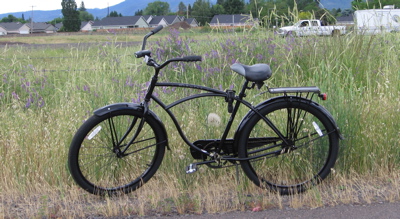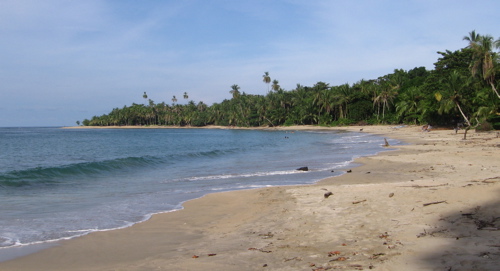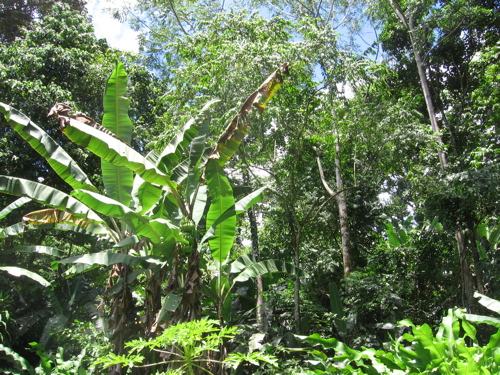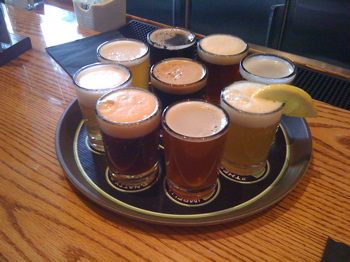Once in my early twenties, while taking a break from my taxes, I decided to write up a list of where my precious, measly pay had been spent. Housing had accounted for $6,000; books and music an estimated $1,300; and I worked in the restaurant industry so food costs were nominal. To my great surprise, when I had calculated out my beer budget, a whopping $2,100 had gone to---you guessed it---the glorious Pabst Brewing Company. It was a staple that continually needed to be stocked: a welcoming offered to every visitor and consumed with relish, like Irish soda bread or tea. Not once do I remember a nose being turned up at it, as I can only imagine my nose would be prone to do today. I don't know if there were many beer snobs in Richmond, Virginia, at that time, but if there were they certainly weren't running in my circles.
Upon moving to Southern Oregon from Costa Rica, the only libation I craved was the cheap, clean, astringency of guaro (sugar cane rum) and coconut water. There was none to be had. I had noticed that the convenient store coolers here in Medford carried more than the average Coors, Miller, and Budweiser trio. I spotted numerous
Ninkasi and
Lagunitas branded hoodies on the same scenesters that I once would have assumed were PBR diehards. It wasn't until boredom brought me into the specialty bottle shop,
Bear Creek Beers, that I did begin to comprehend how vast the world of beer truly is. Confronted with hundreds of glistening bottles, I requested anything with a high alcohol content and the dapper young beer monger directed me to the
Celebrator doppelbock from Ayinger. A relatively high 6.7% was cloaked under a taste that I simply couldn't put a finger on, and to be quite honest, repulsed me. It seemed to my untrained palate like a Heineken that had been reduced on a slow burner for hours. At $3.70 a bottle I choked it down, the perplexed salesman trying to puzzle out what caused my face to pucker so. Upon multiple returns we determined that a rich
Black Boss Porter was more to my liking and the most likely offender was Munich malt, used in many German beers. It was a revelation that such an subtle aftertaste could be pinned down and attributed to a region and style. Beer was beginning not to be just beer.
The first day I heard of Hollandaise was the very same day I was attempting to make a half gallon vat of it to the sounds of a moaning and very frustrated souse chef at a job I had chanced my way into. For two years he patiently introduced me to the basics of the culinary world. Mirepoix and truffles and duxelles, oh my! After my stint at The Jefferson food was never the same. I wonder at the homogeny of my former diet. How I could have lived in a world void of the occasional daikon salad or 12-year aged balsamic dressing? Now, after a season of winter warmers, drinkable session lagers, rich barley wines, effervescent Belgians, smoky rauchbier, and nectar-like lambics, I am left pondering much the same. The ever-hoppy IPAs help to define the Northwest in my mind, as ESBs leave me looking forward to trips to London. Guiness is left by the wayside behind heady coconut porters and Young's Double Chocolate Stout. Beautiful experimental beers such as
Dogfish Head's World Wide Stout or New Belgium's Lips of Faith series continue to challenge the palate. Luckily my area also has two fantastic microbreweries,
Caldera and
S.O.B., to satiate my desire to support local businesses.
If you are interested in expanding your beer horizons don't be shy. Like Guinness? Try a Murphy's Irish Stout. Is New Castle your style? Try a Samuel Smith Nut Brown. I've found many ladies who gravitate to the more fruity beers also love the over the top IPAs like
Russian River's Pliny the Elder or
Oscar Blues' Gubna. But most of all, keep trying, because tastes, like all good things, mature. To which I owe the illustrious Munich malt an apology, for now I find you absolutely delectable.

 By
By 












 By
By 





